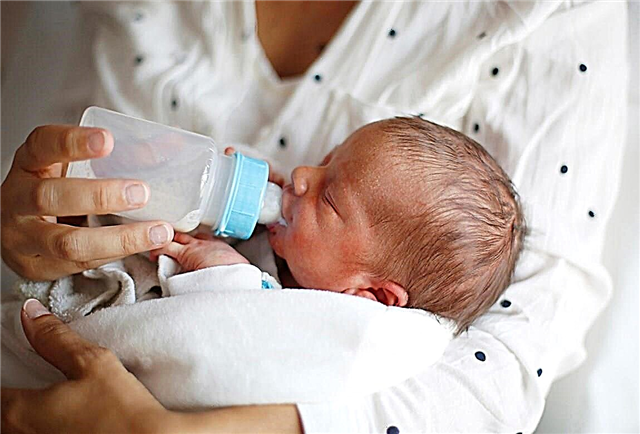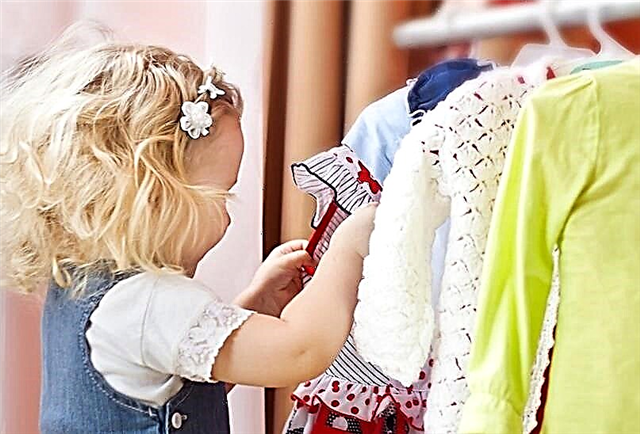Hello! For any child, the family is his small world, where he takes the first steps, learns the world, learns and develops. Everything that the baby hears and observes here forms his ideas about the world around him. Therefore, the internal microclimate in the family is extremely important for the child to grow up physically and mentally healthy. From the relationship between mom and dad, he draws a model of behavior, which he carries into his adult life.

Why is the atmosphere in the family where the child grows important?
It is widely believed that a small child does not understand anything yet. That is why many dads and moms do not hesitate to throw up noisy scandals, which sometimes even turn into fights. It seems to adults that the baby, due to his age, will still not understand the meaning of many words, and in general will not understand the situation properly.
At the same time, few people think that a child, like a sponge, absorbs negative emotions, parental intonations, demeanor, and in the future will begin to imitate them.
Sometimes in kindergarten, kids involuntarily act out the dramas that they spied on in their family. The baby takes the doll and plays, and then suddenly begins to scold her. At this moment everything that the child learned at home from his parents becomes visible and audible. He yells at the poor doll, calls her names, hits her. Only an experienced teacher, observing this picture, will be able to understand in what a terrible atmosphere of stress and conflict a small person grows up. After that, of course, he will try to discuss the situation with his parents, but there are few such discerning educators.
How family scandals affect the baby
Constant family dramas negatively affect the child's health and, as a result, provoke serious problems:
- Psychological disorders in children - This is the most common consequence of constant conflicts in the family. Such problems manifest themselves in different ways. Some of the kids can become an angry and aggressive fighter, constantly starting quarrels with their peers. Other children withdraw into themselves, are reluctant to make contact, avoid communication with anyone. All this worsens mental health, and over time begins to negatively affect the developing character as a whole. If nothing is done, at an older age, the child will have huge problems.
- Physical disorders most often manifested by speech disorders and visual impairment. Living in constant stress, babies start talking late. They also often have speech defects and stuttering. Vision problems often result in a child having difficulty focusing on a particular subject. The fact is that chronic stress affects the cerebral cortex, as a result of which physical health deteriorates, and the development of the baby is delayed.
Children take some scandals so close to their hearts that they are deposited deep in their memory and become almost the only childhood memories. Adults, after resolving the conflict, are able to pull themselves together, so they forget unpleasant episodes. But the children find it difficult to understand what caused the scandal, and they begin to blame themselves for the discord in the family. So the child has obsessive thoughts that he is interfering with mom and dad, that he is not loved, he is all alone. The feeling of one's own uselessness subsequently develops into a large number of complexes.
- 12 Easy Ways To Show Your Love To Your Child Every Day
- 25 tips on how to raise your child in love and peace
The scandals that occur before bedtime are very bad for the child. Due to fear and stress, the baby cannot sleep, so he does not get enough sleep, but in the morning he feels lethargic and upset.
All parents must understand that a showdown in front of a child leads to serious and irreversible consequences. Next, I will give you some tips on how to avoid conflict. This will minimize harm to the baby.
How to behave as parents if a conflict is brewing
In my opinion, every adult should learn the first thing - to keep silent in time. This is difficult to do when emotions are overflowing. Still, it is important to think about the possible consequences of the quarrel and the fact that the lost nerve cells will not recover. Try to distract yourself - for example, count to 100 or do breathing exercises.

The second rule is to pause.so that the beginning quarrel does not develop into a real scandal with screams and smashing dishes. Leave the conflict zone: retire in another room, go outside to ventilate, so that you have the opportunity to think about the situation in a calm atmosphere. Just don't walk away defiantly, slamming the door and rolling your eyes. Better to just say that you need to cool down a little, and then you will be ready to continue the conversation.
The third rule is to learn to control your tongue, watch what you say. The most serious conflicts often begin with insignificant trifles, which are replaced by reproaches for past mistakes: one of you came home late a couple of months ago, forgot to take out the trash, another poured coffee over his laptop, wasted the common money irrationally. Why stir up the conflict even more? After all, we are talking about what has already been passed. Learn to forget the mistakes of the past, not to reproach each other with them, not to get personal. Insults are deeply embedded in the memory of not only children, but also adults.
You can also try changing the subject and discussing something more enjoyable. After that, returning to the subject of the quarrel will become less emotional.
Of course, in family life everything is not perfect, so scandals happen to everyone. Only I am sure that it is in our power to weaken the conflict, so as not to rake its consequences later.
What to do if a scandal took place, and in front of a child
If the kid saw how his parents are quarreling, it is imperative to talk to him and discuss this situation. Explain to the little one in a language that he understands, which caused the scandal. Try to convince him that the conflict is over and that this will never happen again. Do not forget to add that all the hurtful words said were a mistake, but in fact mom and dad are kind and good and love each other.

Make peace with each other. The main thing is for the baby to see that everything is working out and the parents are again communicating normally with each other. Only now you should not pretend that you are reconciling for the sake of the child (ie, you should not arrange a "truce performance" for your own only for the child). Kids are acutely aware of falsity and insincerity.
Show your baby your love. Hug and kiss your child, tell him how much you love him. The child needs to know and feel that everyone in his family loves each other.
If you fight in such a way that it comes to fights, you should seriously think about it. At least discuss with your spouse in a relaxed atmosphere what is happening between you. You can also resort to the help of a family therapist. Remember that children from a young age silently watch all family dramas. They cannot answer and even simply leave the conflict zone. Year after year passes, and for kids this state of affairs becomes the norm. In the future, they will transfer the same model of relations to their families.
If a boy constantly watches his dad beat his mom, in adulthood he simply will not be able to treat women well. It will be normal for him to resolve any conflicts with his wife with his fists. He will not have respect for his own mother, and, therefore, for all other women.
For a girl growing up in such a family, the mother's behavior model will become the norm. When she grows up, she will not respect herself, will take on the role of a victim, will constantly walk around in bruises from beatings and for her it will be a normal way of life. After all, this is the model of the family in which she lived and which became normal for her.
Unfortunately, complete families are not always healthy. Rather, I mean that family relationships should be harmonious. It is important that the child is brought up in love and happiness, and the house is his fortress, in which he feels protected. In families with the opposite situation, children, as teenagers, often run away from home because they are uncomfortable there.
Even if the family has broken up, this is not a reason to give up. Each of us can build new relationships. Only when choosing a future spouse do not forget about the child. Difficulties lie in wait for us everywhere, but with the right approach, you can create a harmonious family for your child.
[sc name = ”rsa”]
I want to emphasize that from birth, a child is a person, he has rights not only to food, shelter, clothing, education, but also to mental health. The kid needs to be brought up in love and harmony from the first days of his life. If something in your family isn't perfect, work on it. After all, any quarrel that occurs in front of a child is deposited with a heavy load in his memory and leads to complexes, health problems in adulthood. If you feel that the conflict is inevitable, try to explain to the baby what is happening, only very delicately so as not to harm his psyche.
Conflicts happen in all families. This is normal, because there is no escape from everyday troubles. Only some can keep silent in time, calmly discuss everything and smooth out the conflict, while others only heat up passions and inflate a petty quarrel into a violent scandal. I am sure that the family still needs to be built on love and respect for each other. Therefore, learn to resolve disputes peacefully, respect yourself and your child.
And most importantly: remember that your child is your reflection, you are the main example in life for him. So start with yourself and change for the better to become a worthy role model for your child.
We also read: Parental quarrels and scandals in the family: the impact on the child



